Cultural Medallion and Young Artist Awards
Meet this year's Cultural Medallion and Young Artist Award winners
The Straits Times speaks to the winners of Singapore's highest honours in the arts and the young talents lauded



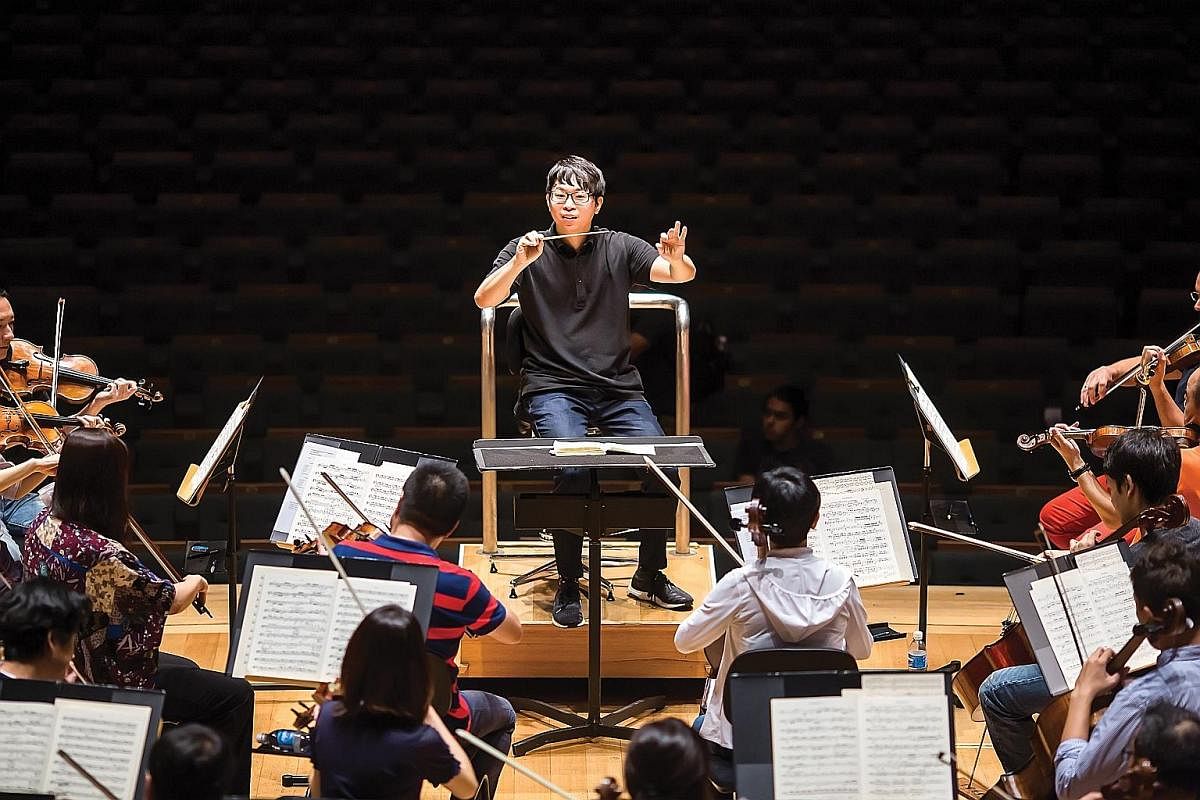

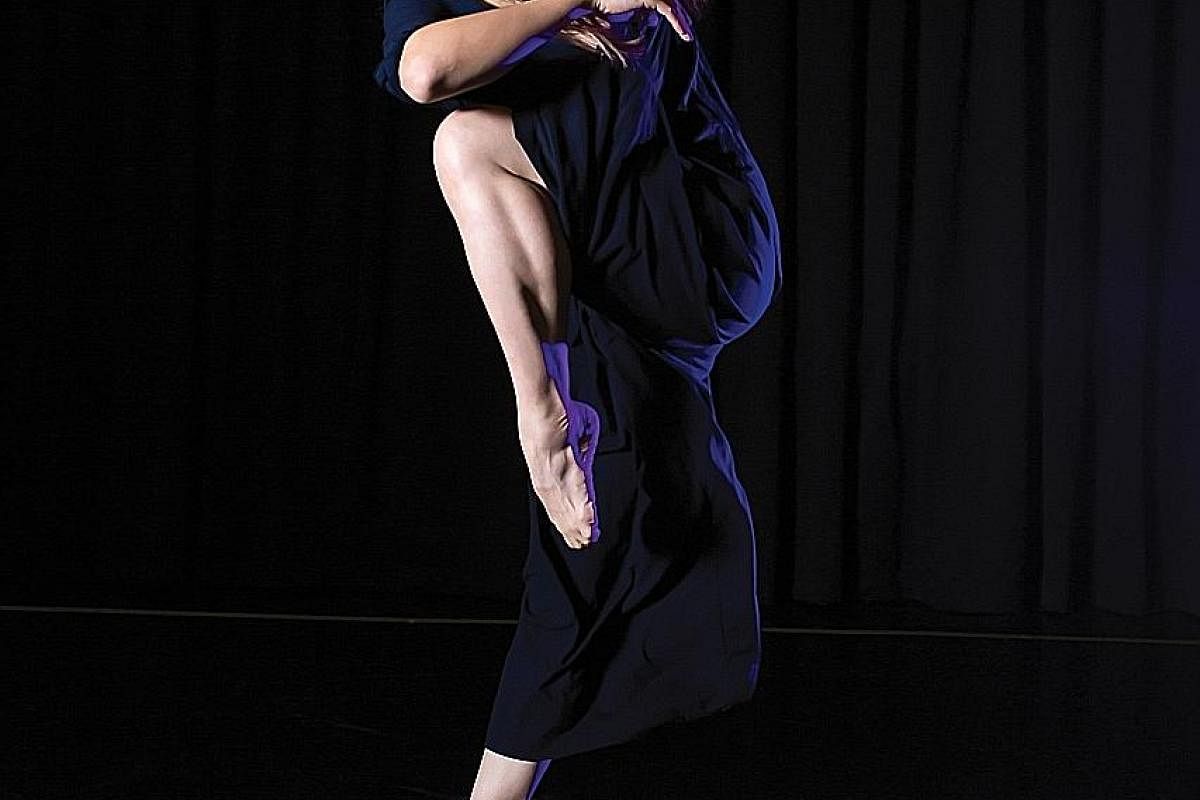
Writer Djamal Tukimin and composer Law Wai Lun are this year's recipients of the Cultural Medallion, Singapore's highest honour in the arts.
The two pioneers received the award from President Halimah Yacob at a ceremony held yesterday at the Istana.
The Cultural Medallion recognises individuals for their artistic excellence as well as their contribution and commitment to Singapore's arts and cultural landscape.
Since it was established in 1979, it has been awarded to 121 artists in the fields of film, literary arts, performing arts and visual arts. Each recipient can access funds of up to $80,000.
At the ceremony, four artists aged 35 and younger were also presented with the Young Artist Award by Minister for Culture, Community and Youth Grace Fu.
The award, which recognises and encourages the development of young artistic talents, was given to poet Joshua Ip, dancer Yarra Ileto, conductor Wong Kah Chun and multi-disciplinary artist Kray Chen.
The Straits Times speaks to the recipients of the awards.
Pioneer poet had to drop out of school to support family
Djamal Tukimin's home is groaning under the weight of books. His modest five-room Housing Board flat in Yishun houses a library of 15,000 books - covering nearly all available surfaces and in one room stacked as tall as a person - and contains volumes so rare that Malaysian PhD students cross the Causeway to knock on his door and plead for permission to make a photocopy.
The 71-year-old, who wears many hats as a poet, novelist, playwright, literary critic and researcher, heard the news that he was to receive the Cultural Medallion during the fasting month in June, 10 days before Hari Raya Puasa.
"It was like God had given me something special," he says.
One of the local pioneers of Islamic poetry, his accolades include the Anugerah Tun Seri Lanang, Singapore's highest Malay literary award, and the Archipelago Poet Award, conferred two years ago by the Prince of Songkla University (Thailand).
Yet he was largely self-taught, having had to drop out of secondary school to support his family.
Djamal grew up in the kampung of Geylang Serai, where he lived until the 1970s. It was a dirty, cramped place, he recalls, where the verandah looked onto the neighbour's kitchen or toilet and the drains would overflow every time it rained.
He loved it nevertheless. "I cried when I left, for three or four days," he says. It became the subject of his long poem Betapapun Nyanyian Rindunya Si Anak Geylang Serai (The Sheer Longing Of The Geylang Serai Child).
His father sold soto and satay at the tram terminal and he went to school in slippers because his family could not afford shoes. After his father died, he left Secondary 2 and took on odd jobs to support his family, eventually becoming a wood machinist in the 1960s.
But his heart was in writing. To make up for his curtailed education, he read voraciously, especially books on history.
In 1963, he took part in a short-story competition during the Ministry of Culture's National Language Month and won. His story was published in Suara Belia (Voice Of Youth), a magazine by the Malay Youth Literary Association, also known as 4PM.
His writing career took off from there, as he began to mingle with established writers such as Noor S.I., Masuri S.N. and Maimunah Haji Omar.
In 1970, he was among the founders of poets' collective Grup Gelorasa, which injected new energy into the contemporary Malay literature scene.
He has been widely published - poetry collections, literary criticism, a novel called Imam, a tome on Malay pantun - and has more in the works.
His poetry is noted for its exploration of religion, nature and social issues in Singapore's struggles post-independence.
He has also been involved in the performing arts, having written four plays, including the 1991 satire Seekor Kerbau Hitam Legam Dalam Mimpi Sang Pangeran Tomtom (The Black Buffalo In The Dream Of King Tomtom). In 2009, he performed an hour-long solo poetry recital at the Esplanade Recital Studio.
Djamal has been married to Madam Maimunah Abdul Rahman, 67, for 45 years. They have five sons and 10 grandchildren.
He says the award will give him the confidence to produce more work, as well as the means to get them published.
Every day, he starts writing at 6.30am. Besides a midday nap and evening television, he keeps writing until well past midnight.
"Writing is my discipline," he says. "I cannot sit around waiting for inspiration. It is my duty, my moral responsibility, to put my ideas into society.
"If I could not read or write, I would die."
Chinese composer helped develop Nanyang music style
For local connoisseurs of Chinese orchestra, one name tends to pop up in concert programmes - that of composer Law Wai Lun.
Law, 73, was born in Shanghai and has lived in Singapore since 1995. The Cultural Medallion, he says, is a validation of the 22 years of work he has done in Singapore.
"It will spur me to work harder, so as not to let down the honour the award has conferred upon me," he says in Mandarin.
He came from a family of music lovers. His mother particularly loved the piano pieces of Tchaikovsky and wanted him to be able to write music like that.
He entered the prestigious Central Conservatory of Music in Beijing at the age of 12, where he studied Western classical composition. His education was interrupted, however, by the Cultural Revolution in the 1960s, which happened just as he was about to graduate.
He and his classmates were sent to work on a farm for 41/2 years. "We felt helpless, worried about how we could go on to practise music in our country," he says.
Concerned that some of their friends were being abused under investigation, they wrote a report to the authorities, but it was rejected and they ended up being detained for investigation for two years as a result.
Law, who was of a weaker constitution, passed out during one of the exercises they were made to undergo daily. "There was a bed to my left and a burning brazier to my right, and I thought, I hope I fall to the left. Luckily, I did. Not all of my classmates were so fortunate - some suffered violence.
"It was a tumultuous period for China, but it wasn't altogether a bad thing," he adds. "What I endured widened my perspective on life and that has been useful for my creative process."
He moved to Hong Kong in 1980 and subsequently to Singapore with his wife Feng Xue Fang, 61, with whom he has a son, 25.
While Law had begun experimenting with composing for Chinese instruments in Hong Kong, it was in Singapore that his imagination truly took flight.
"I never thought I could achieve such a wide spectrum of music until I came here," he says.
In Singapore, he began to work closely with Singapore Chinese Orchestra (SCO) music director Yeh Tsung, another Cultural Medallion recipient.
His work The Celestial Web, which responds to Singaporean artist Tan Swie Hian's poem Qian Nian Yi Xun (An Instant In A Millennium), had its premiere at the 2003 Singapore Arts Festival to much acclaim and has since been widely performed across Asia.
He followed this in 2005 with Admiral Of The Seven Seas - Zheng He, an epic 80-minute composition commissioned to mark the 600th anniversary of the Chinese explorer's first voyage.
Law is regarded as a pioneer of the Nanyang style, the incorporation of South-east Asian elements into Chinese instrumental music.
In his opinion, it is as yet a nascent movement.
"It is still early days and we are only beginning this journey," he says. "It is for our descendants to truly understand what Nanyang is."
That said, what he strives for in capturing the Nanyang flavour is the embracing of local colour, taking in the tropical sunshine and flourishing vegetation, as well as making use of instruments such as the gamelan, as he did in his work Prince Sang Nila Utama And Singa.
Law, who was the SCO's composer-in-residence from 2012 to 2014, was also presented with the Artistic Excellence Award earlier this year by the Composers and Authors Society of Singapore.
He has also been known to mix tradition and modern sounds, experimenting with the likes of jazz and rap.
This has earned him his share of scepticism from purists.
"People will say you are ruining tradition, but I see it as enriching the future," he says. "Chinese music is but an instrument. If you can expand its domain to include other cultures and movements, it will become more international, not just national."
He believes that for local Chinese orchestra music to reach the next level, it must go international.
"We have created a lot of our own repertoire and we should take it to other places.
"People think of Singapore as being economically successful and having a lot of money. But they should also know that we have worked hard on our culture and that it is unique."
Artist, conductor, poet and dancer make their mark
Four artists in their 30s have received the Young Artist Award from the National Arts Council.
Conductor Wong Kah Chun, 31, says the award affirms how he sees himself as "a cultural ambassador that flies the Singaporean flag wherever I am".
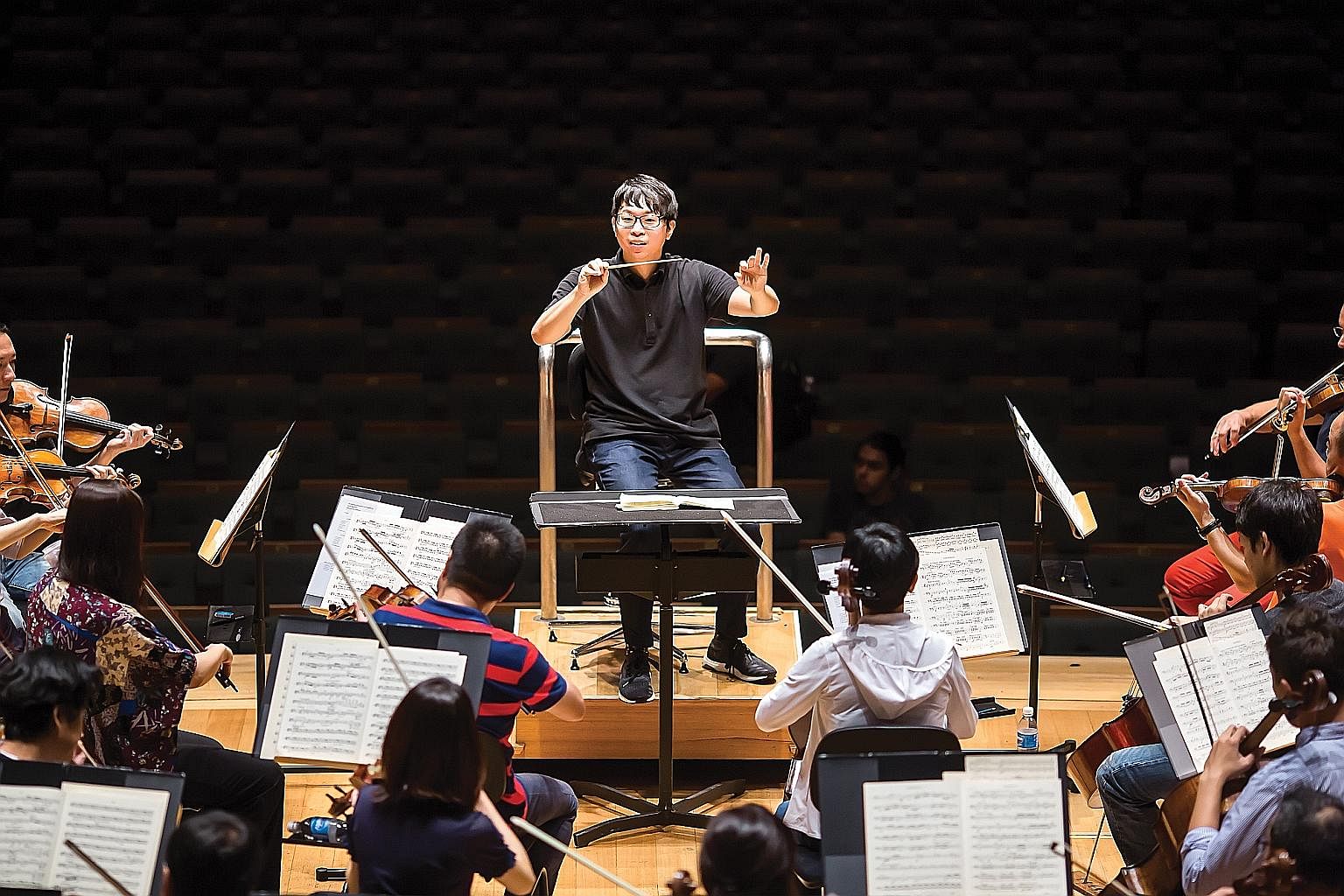
He learnt of the award while on a whirlwind tour of the world's orchestras and dropped in at the Istana to receive the award right after conducting the Bamberg Symphony in Germany. He will fly out today for his next concert date with the Konzerthausorchester in Berlin.
While he has been garlanded abroad - most notably when he became the first Asian to win the prestigious international Gustav Mahler Conducting Competition last year - he values this local award just as much.
"Any award, international or local, significant or otherwise, holds the same value to me," he says.
The award left dancer Yarra Ileto, 34, in "shock, but a good shock".
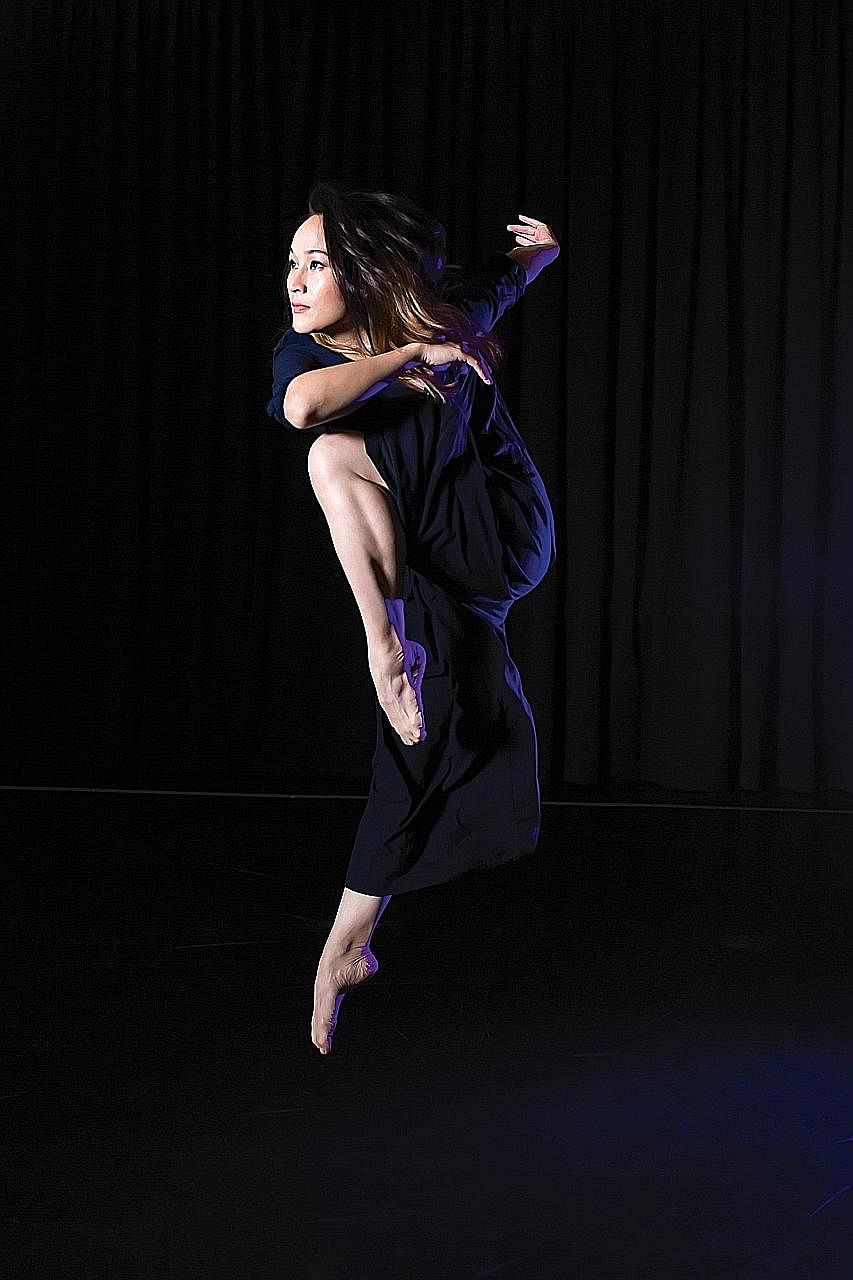
Born in Australia, she has been dancing since she was four years old. She was part of T.H.E Dance Company from 2008 to 2015 and was with The Arts Fission Company from 2015 until April last year. She is now working independently.
Every role she has danced has been challenging in some way - once, for T.H.E Dance Company's 2014 work The Ordinary Man, she had to sing in Mandarin despite not speaking the language.
She says: "I have been in more uncomfortable situations than comfortable, so I believe the lesson is to do what makes you uncomfortable and keep doing it until it's not."
Multi-disciplinary artist Kray Chen explores "the collective muscle memory of a people and the traces of remembered movements" in works such as video performance series Exercise Now And Fit A Standard Size Coffin Later, which began in 2013 and is ongoing.
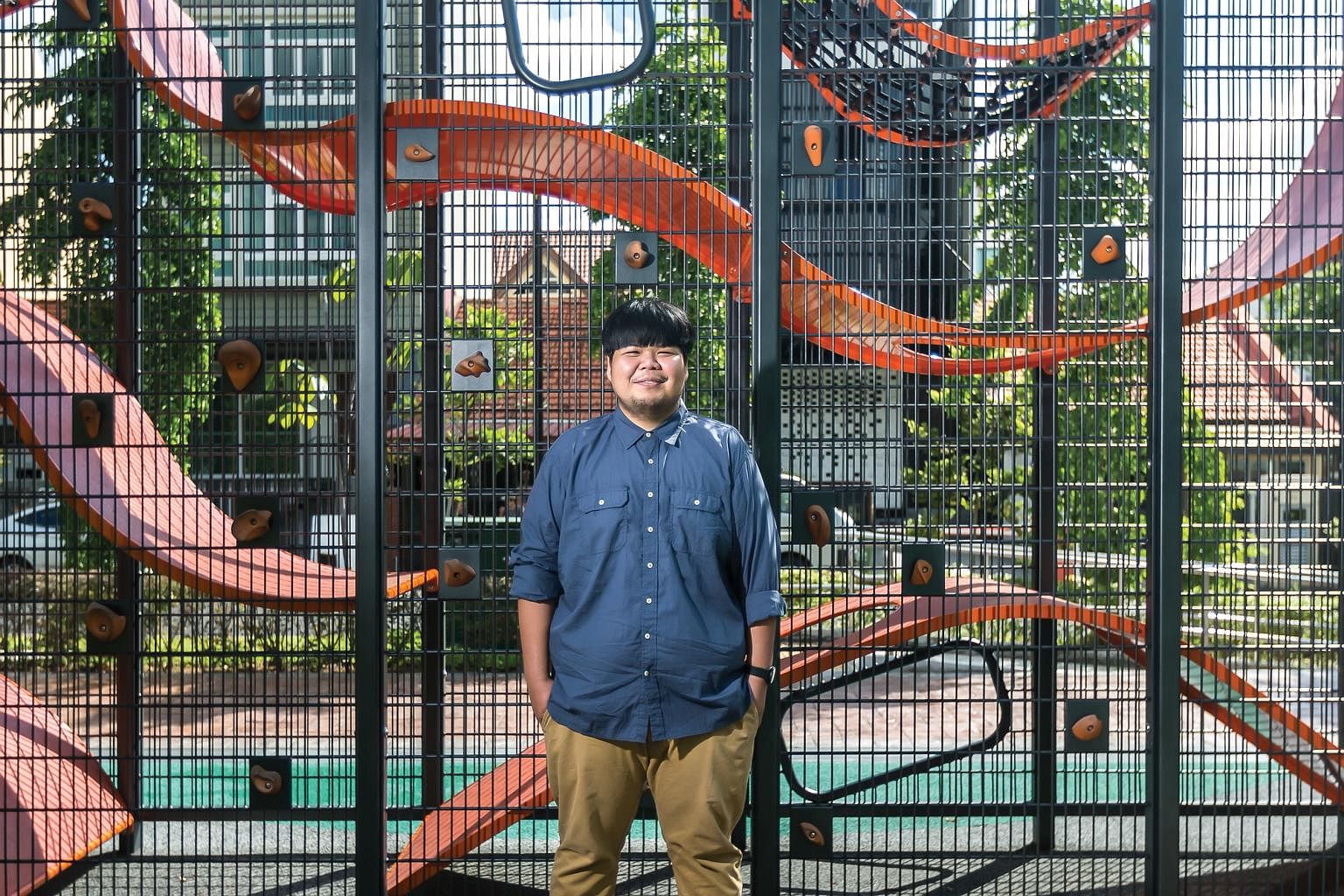
The 30-year-old, who went through the TAF (Trim and Fit) club in school, says: "I am from a generation that is a product of rather extensive social engineering experiments."
The TAF programme was run from 1992 to 2007 to tackle obesity and promote fitness in schools.
He draws parallels between routine body movements - from the Great Singapore Workout to the enforced marching, drills and punishments of national service - to explore how these define Singaporeans' identities and conditions as a people.
"When I re-enact these movements, I am re-negotiating with this identity/condition," he says.
Poet and editor Joshua Ip, 35, says he hopes to apply for and redistribute the $20,000 grant available to each recipient to initiatives such as literary non-profit Sing Lit Station, which he founded, as well as other artists.
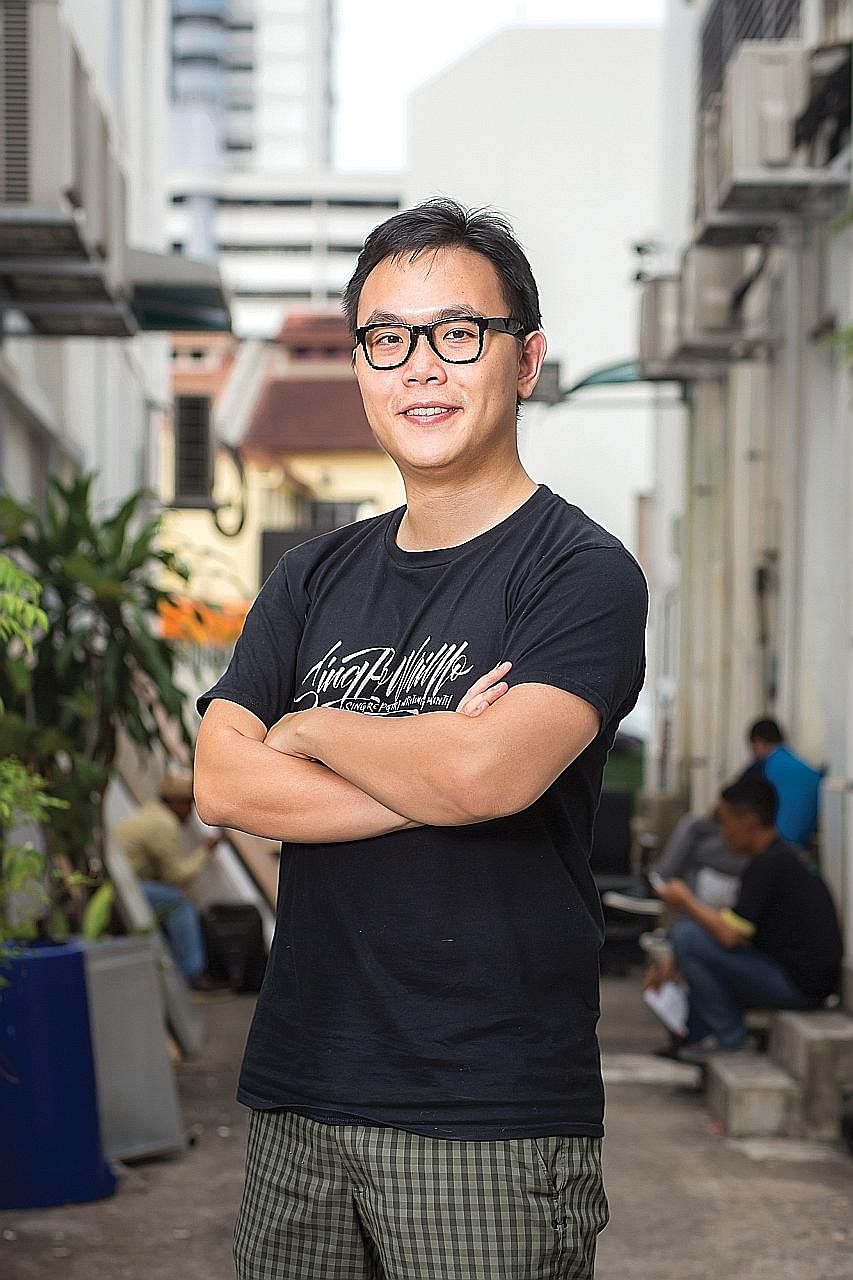
Ip, who has published four poetry collections and co-won the Singapore Literature Prize in 2014, says: "To paraphrase (the poet W. H. Auden), poetry makes nothing happen, but nothing happening doesn't make poetry.
"Poetry will not remain relevant by remaining where it is - it's only through the efforts of innovators, tradition-breakers, organisers, marketers and publicists that even a single per cent of the population will gain an inkling of 'Sing lit'."
He is heartened to see greater audiences for readings and more volunteers, but adds: "I am constantly reminded that regardless of all the growth, we are still starting as a niche within a niche."
Olivia Ho
Join ST's Telegram channel and get the latest breaking news delivered to you.
A version of this article appeared in the print edition of The Straits Times on October 25, 2017, with the headline Meet this year's Cultural Medallion and Young Artist Award winners. Subscribe

